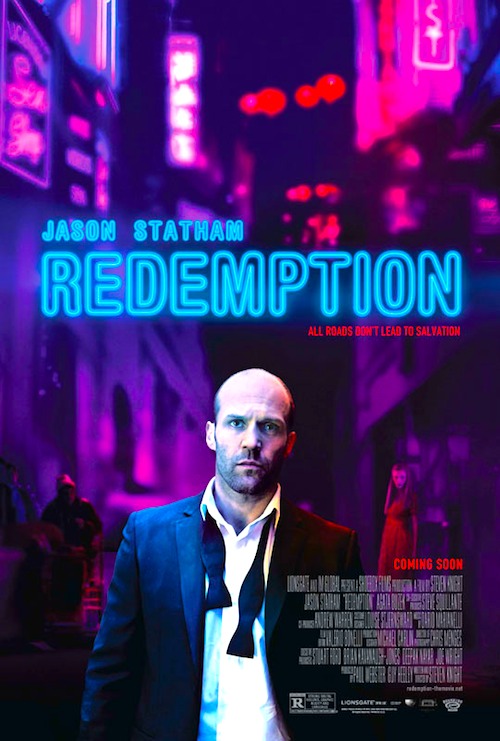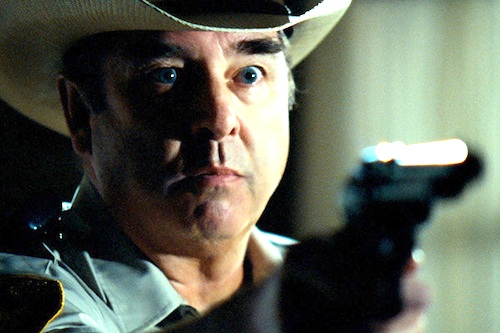By Joe Bendel. It is not exactly “Garbo Talks,” but as hooks go, “Statham Cries” is pretty good. The action star’s big close-up comes in the right vehicle. In a throwback to the angry young anti-hero films Michael Caine cut his teeth on, Statham prowls the mean streets of London in screenwriter-director Steven Knight’s Redemption, which opens this Friday in select cities.
Haunted by his war crimes, a shell-shocked former Special Forces soldier lives a homeless existence to evade a certain court martial. Deeply traumatized by his experiences, he often suffers from flashbacks and hallucinations. Terrorized by local thugs, “Joey” finds unlikely refuge in an exclusive hipster flat. Unfortunately, his companion Isabel is captured and consigned to a low-end brothel.
Using the resources of his unwitting host (conveniently abroad for the season), Joey cleans himself up and takes work as an enforcer for a Chinese crime syndicate. With the reluctant help of inner-city mission nun Sister Cristina, Joey Jones (as he now calls himself) tries to track down Isabel. Yet, despite his erratic behavior, a strange relationship develops between them.
 Granted, the “troubled” vet is always a problematic device. However, the film is rather sensitive in its depiction of Joey Jones, while never absolving him of his sins. There are definitely beatdowns in Redemption, but the film is more concerned with mood and character development. Knight demonstrates a keen understanding of tension-and-release, so when the violence flares up, it never feels gratuitous.
Granted, the “troubled” vet is always a problematic device. However, the film is rather sensitive in its depiction of Joey Jones, while never absolving him of his sins. There are definitely beatdowns in Redemption, but the film is more concerned with mood and character development. Knight demonstrates a keen understanding of tension-and-release, so when the violence flares up, it never feels gratuitous.
Clearly, Oscar winning cinematographer Chris Menges loves the neon lights and shadows of Redemption’s nocturnal world, getting all the Miami Vice he ever had in him out of his system. The film looks great, aside from a few awkward scenes of Jones’ delirium. Statham is also surprisingly good as Jones, convincingly portraying his violent unpredictability. Viewers are never quite sure how he will react in a given situation, which is a major reason why Redemption works so well.
Statham also shares some richly intriguing chemistry with Agata Buzek (the daughter of former Polish Prime Minister and Solidarity activist Jerzy Buzek), whose intelligent but tightly wound performance adds significant depth to the film. The notion that Jones and Sister Agata are sharing a mutual “wild patch” in their lives may not exactly ring true, but it still works within the film’s dramatic context.
Knight nicely maintains the tragic logic throughout Redemption, but the NSA-ish surveillance motif book-ending the proper narrative feels wholly out of place in his street level tale. Nonetheless, Redemption is a stylishly executed over-achiever that is only really missing the Roy Budd-inspired soundtrack. Recommended for fans of Statham and old school payback movies, Redemption opens this Friday in New York at the Village 7.
LFM GRADE: B+
Posted on June 25th, 2013 at 12:07pm.

